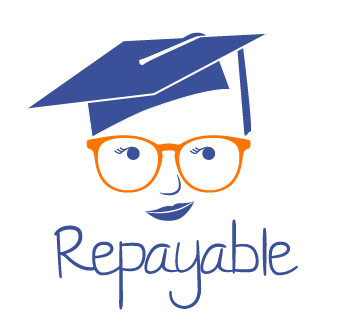Sometimes it feels like you’re supposed to “do it all”. When you’re in college you should be, studying, working, volunteering, interning, dating, partying, and laying the foundation for future you. Then you graduate and the next list of shoulds starts in. You should find a good job, work your way up, put in your dues, become an adult, travel, live your life, make friends, get married, buy a house… the list never ends.
But the thing that everyone seems to miss is that some of those goals contradict each other, some of those goals aren’t even your goals, just a list of someone else’s “shoulds”. I say it’s time to forget the “shoulds” and pursue your own goals. Because there’s something that’s going to limit you, and it’s money. Plain and simple, when you finish college with student loan debt, your cashflow is going to be a rate limiting step. And you don’t have enough money to waste it on someone else’s “shoulds” you’ve got enough money to chase down and achieve your goals.
So how do you accomplish your goals with the weight of student loan debt on your back? You set crystal clear priorities and you stick to them. Estimated read time ~ 5 min, estimated watch time at 1.5x ~3.5 min.
Set goals and prioritize them.
Paying back student loan debt is hard, it’s harder for some than it is for others. The more debt you have, the lower your income, and the higher the cost of living, the harder it is to pay back your student loans. That’s why you have to decide what goals you want to accomplish, not what someone else wants for you, or what you think you should do, but what you actually want for yourself.
Start by asking yourself what the most important things are that you want to achieve right now. Write down a list of your ambitions and think about them. Get rid of anything that’s not your personal goal but comes from an external source.
Tip: If you’re not sure if a goal is yours or external look at the language you use when thinking or talking about the goal. If you’re saying the word “should” a lot, you probably don’t want to do this right now.
Maybe someday a “should” goal will change to something you truly want, but that day isn’t today so that goal doesn’t make the cut. Ruthlessly pare down your list until you get a few core goals.
An example list may look like this:
- See new places by traveling
- Expand my career, build and use new skills
- Build financial independence and positive net worth
Establish the necessary first steps.
What are the very basic first steps you need to take? This is where you’re going to learn how much it really costs you to work on each goal. Remember, some goals are going to cost you money, but career goals can generate income, so it’s not necessarily all negative cash flow.
Look at your financial situation honestly.
Many goals require money; travel, financial independence, buying a home, etc. It’s impossible to make the right decisions to fund these goals unless you understand your financial situation clearly. That means you need to look at your student loan debt, figure out how much that costs you each month, and decide if that repayment strategy is right for you.
Here’s Repayable’s Road Map to Understanding Your Student Loans to get you started.
Once you’re on track with the student loan side of things it’s time to assign funds to your most important goals. You only have so much money to leverage at the end of the day. Think about that carefully when setting savings and investing goals.
For folks with an employer-sponsored retirement fund that has a matching contribution I always encourage you to find a way to get the maximum employer match. By doing that, you’re effectively increasing your pay, although you can’t use that money today. After that, additional contributions are up to you and can be flexible based on your other goals.
What can you get rid of in your life?
Getting rid of stuff isn’t everyone’s cup of tea, but hear me out. You can’t have it all financially, at least not right away. By cutting out things that matter less to you, you can free up money to meet your important goals. Maybe you moved to a city and still have a car that you don’t really need. So you get rid of the car, the car payment, the insurance payment, and opt for public transportation. It’s a sacrifice, but maybe it means you can take one extra trip each year, or pay off your student loans 2 years faster.
Setting priorities and sticking to them is hard. It can be disappointing to realize after a long time spent sacrificing in college, that you can’t have it all and still have a season of sacrifice in front of you. Your financial sacrifice is most intense as you start out, but with careful planning and goal setting you can lessen that intensity over time and achieve your goals.
I want to know what sacrifices you’ve had to make in pursuit of the goals that are most important to you. Leave me a comment below or on the Repayable Facebook Page.


Recent Comments